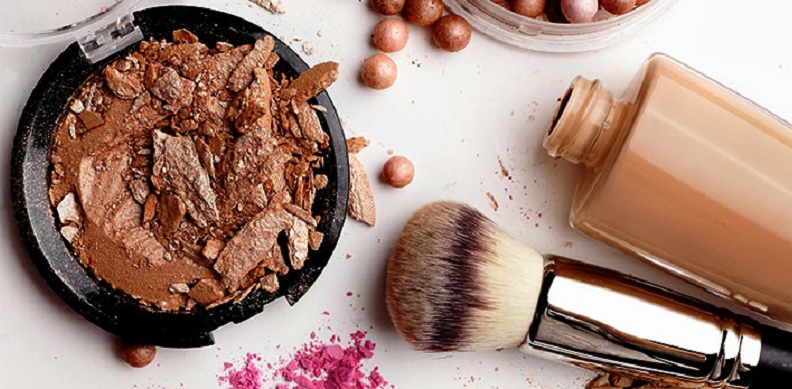
Over the years, skincare has transcended from merely using natural ingredients to an advanced regimen teeming with scientific innovation. Nanotechnology, the science of manipulating matter on an atomic and molecular scale, is making waves across various industries, and skincare is no exception. With its potential to enhance the effectiveness of skincare products, this new technology offers exciting prospects.
Contents
- Introduction to Futuristic Skincare
- Understanding Nanotechnology
- Potential of Nanotechnology in Skincare
- Safety and Ethical Considerations of Nanotechnology in Skincare
- The Future of Nanotechnology in Skincare
- References
Introduction to Futuristic Skincare
In the realm of personal care, skincare is a field that has long captivated the minds and hearts of scientists, dermatologists, and beauty enthusiasts alike. Skincare rituals have come a long way, dating back to the ancients who used natural elements to the modern age where we have advanced scientific knowledge at our disposal.
Brief Overview of the Blog Post
In this post, we will explore how a powerful science, nanotechnology, is changing the game in skincare, offering potential benefits that were once considered a part of science fiction. This fascinating new technology, although not without its challenges and ethical considerations, promises to redefine skincare as we know it.
Importance and Evolution of Skincare
Skincare is not just about maintaining an aesthetic appearance, but it’s a vital aspect of our overall health and well-being. Our skin is the largest organ of the body and serves as the first line of defense against external elements. It plays an integral role in protecting us from harmful pathogens and excessive water loss, and in regulating body temperature. Therefore, taking care of it is not a vanity, but a necessity.
Over time, skincare practices have evolved tremendously. From the basic use of plant extracts and animal fats in ancient civilizations to the employment of science-backed synthetic and natural compounds today, skincare has become a sophisticated industry. The advent of new technologies, particularly in the last few decades, has radically changed the way we approach skincare, aiming to make it more efficient, personalized, and safe.
Emergence of Technology in Skincare
One of the defining characteristics of modern skincare is the harnessing of technology. In recent years, we have witnessed how innovations such as DNA-based skincare, LED therapies, and smart beauty devices have set the stage for high-tech skincare.
Nanotechnology is another technological marvel that is set to revolutionize skincare. By working at the molecular level, it opens up new possibilities for product formulation and delivery, offering superior results and potentially transforming our skincare routine.

Understanding Nanotechnology
Before we enter into the fascinating intersection of nanotechnology and skincare, let’s take a moment to understand the basics of this technology that is causing ripples across various industries.
Definition and Basics of Nanotechnology
Nanotechnology is the science, engineering, and application of materials at the nanoscale, which is about 1 to 100 nanometers. To give you a sense of scale, a human hair is approximately 80,000 to 100,000 nanometers wide. At this scale, the properties of materials can be very different from those at larger scales — changes in optical, electrical, or mechanical behavior can occur. This is why nanotechnology is seen as such a transformative field; it gives us the opportunity to create and manipulate materials with unique properties that can be leveraged in myriad ways [1].
Current Applications of Nanotechnology in Various Fields
Nanotechnology has already found its way into numerous fields. In medicine, for instance, it’s being explored for its potential in targeted drug delivery, which could minimize side-effects and increase the efficacy of treatments. It’s also being used in electronics, where the development of nanoscale transistors has made it possible to pack more computing power into smaller spaces, leading to the powerful and compact devices we use today.
In environmental science, nanotechnology offers solutions for cleaner energy production, efficient energy storage, and even the removal of pollutants from water. The field of textiles is also benefiting from this technology, with the development of materials that can resist stains, regulate temperature, or even monitor health parameters [2].
Evolution of Nanotechnology in Skincare
In the context of skincare, nanotechnology has been gradually making its presence felt. From nano-emulsions that enhance the absorption of skincare products to nanoparticles offering superior sun protection, nanotechnology holds the promise of remarkable improvements in skincare product formulation and effectiveness.

Potential of Nanotechnology in Skincare
Nanotechnology’s unique properties make it a promising tool in the realm of skincare. By working at the nanoscale, it offers the potential to enhance skincare products’ effectiveness, improve their delivery, and create novel solutions to skincare problems.
Nano-Emulsions for Improved Product Penetration
One of the major challenges in skincare is ensuring that the active ingredients in a product penetrate the skin effectively. This is where nanotechnology can play a significant role [3].
Explanation of Nano-Emulsions
Nano-emulsions are a type of emulsion, a mixture of two or more liquids that don’t normally mix, but with a crucial difference – their droplet size. In a nano-emulsion, the droplets of one liquid dispersed in another are at the nanoscale, which can significantly alter their behavior and properties.
Benefits of Nano-Emulsions in Skincare
The reduced droplet size in nano-emulsions can help improve the delivery and absorption of active ingredients in skincare products. With their small size, these droplets can penetrate the skin more effectively, delivering ingredients like vitamins, antioxidants, or retinoids directly to the skin cells. This means skincare products with nano-emulsions can be more effective, as more of their active ingredients reach the target skin layers where they can do the most good.
Nanoparticles for Sun Protection
In addition to improving the effectiveness of skincare products, nanotechnology also offers potential improvements in sun protection [4].
Problems with Traditional Sunscreen Formulations
Traditional sunscreen formulations often leave a white, chalky residue, largely due to the size of the sun-blocking particles they contain. Additionally, these particles may not offer complete protection, as they only block some of the harmful ultraviolet (UV) rays.
How Nanoparticles Improve Sun Protection
Nanotechnology can address these issues by reducing the size of these sun-blocking particles to the nanoscale. Nano-sized zinc oxide and titanium dioxide, for example, can provide broad-spectrum UV protection, blocking both UVA and UVB rays. Additionally, because of their size, they appear clear on the skin, eliminating the white residue that many people find undesirable.
Nanotechnology in Anti-Aging Products
Nanotechnology’s potential isn’t limited to improving product absorption and sun protection; it could also play a role in anti-aging skincare products [5].
Role of Nanotechnology in Enhancing Anti-Aging Formulas
Anti-aging skincare relies heavily on potent active ingredients, such as retinoids, peptides, and antioxidants, to help reduce the signs of aging. However, these ingredients can often be unstable or difficult for the skin to absorb effectively.
Nanotechnology can help here by encapsulating these ingredients in nano-sized carriers, enhancing their stability and improving their skin penetration. This could result in anti-aging products that are more effective at reducing wrinkles, improving skin elasticity, and promoting a youthful appearance.
Current Innovations in Nano-Anti-Aging Solutions
Several brands are already harnessing nanotechnology in their anti-aging products. For instance, some are using nanoparticle carriers for retinol, a popular anti-aging ingredient, to reduce its potential irritation and enhance its effectiveness.
As we continue to understand the capabilities of nanotechnology, it’s likely that we will see even more innovative and effective anti-aging solutions in the future. But as we embrace this exciting technology, we also need to consider the potential risks and ethical implications it brings.

Safety and Ethical Considerations of Nanotechnology in Skincare
While the benefits of nanotechnology in skincare are tantalizing, it’s equally important to explore the potential risks and ethical implications. As with any new technology, ensuring safety and ethicality is paramount.
Potential Health Concerns
As we delve into the microscopic world of nanotechnology, questions arise about the potential health implications.
Overview of Current Research on Safety
Current research on the safety of nanoparticles in skincare products is ongoing and complex. The small size of nanoparticles allows them to penetrate the skin more effectively, which is advantageous for product effectiveness but also raises questions about potential health risks.
Some research suggests that certain nanoparticles might penetrate the skin deeply enough to enter the bloodstream, leading to potential systemic exposure. However, the scientific consensus is far from settled. Most studies indicate that healthy, intact skin is an effective barrier against nanoparticle penetration, but further research is needed to fully understand the potential risks [6].
Possible Risks Associated with Nanoparticles in Skincare
Potential risks could include allergic reactions, inflammatory responses, or long-term health effects from sustained exposure to nanoparticles. It’s crucial to note that the risk can vary significantly depending on the type of nanoparticle, its size, coating, shape, and the individual’s skin condition.
The need for comprehensive safety assessments for products containing nanoparticles is widely recognized within the industry. It is essential for manufacturers to adhere to strict safety guidelines and for regulatory bodies to ensure the safe use of this technology in skincare.
Ethical Considerations
Beyond safety, nanotechnology in skincare also raises ethical considerations.
Environmental Impact of Nanotechnology
One significant concern is the environmental impact of nanoparticles. Nanoparticles can end up in the environment after being washed off the skin, potentially affecting aquatic ecosystems. Although research in this area is still in its early stages, it’s an important consideration that needs to be addressed as nanotechnology becomes more prevalent in skincare.
Regulation and Transparency in Nanotech Skincare Products
Another ethical aspect is the need for regulation and transparency in products using nanotechnology. Clear labeling of nanoparticles in skincare products allows consumers to make informed decisions. It is critical for regulatory bodies to ensure transparency and provide guidelines for manufacturers to follow.
The Future of Nanotechnology in Skincare
The potential of nanotechnology in skincare is just beginning to be realized. With its ability to enhance product effectiveness, improve ingredient delivery, and create innovative solutions to skincare problems, nanotechnology could revolutionize the skincare industry.
Upcoming Innovations and Trends
As we look to the future, we can anticipate more sophisticated and targeted uses of nanotechnology in skincare. With advances in nano-bio engineering, we might see skincare products that can target specific skin cells or even skin organelles for more effective treatment.
Imagine anti-aging creams that deliver antioxidants directly to skin cells, or acne treatments that target and kill bacteria without disturbing the surrounding skin. Or envisage a sunscreen that not only protects your skin but also repairs UV damage at the cellular level.
The possibilities for nanotechnology in skincare are vast, and these are just a few examples of potential innovations we might see in the coming years.
Expert Predictions for Nanotech in Skincare
Experts predict that as we gain a deeper understanding of nanotechnology, its use in skincare will become more prevalent. The key lies in the ongoing research and development into safe and effective uses of this technology.
The demand for personalized and effective skincare products continues to grow. And with it, the drive to develop innovative solutions using nanotechnology increases. Skincare brands that stay at the forefront of nanotechnology research and development will be well-positioned to meet these evolving consumer needs.
However, as we’ve discussed, the rise of nanotechnology in skincare also raises safety and ethical questions that will need to be addressed. Ensuring the responsible use of this technology will be a critical focus area for the skincare industry moving forward.
References
[1] Nanotechnology in Skincare
[2] Role of Nanotechnology for Design and Development of Cosmeceutical: Application in Makeup and Skin Care
[3] The emerging role of nanotechnology in skincare
[4] Nanotechnology in Cosmetics and Skin Care
[5] Nanotechnology in Cosmetics and Cosmeceuticals—A Review of Latest Advancements
[6] Cosmetics Nanotechnology







